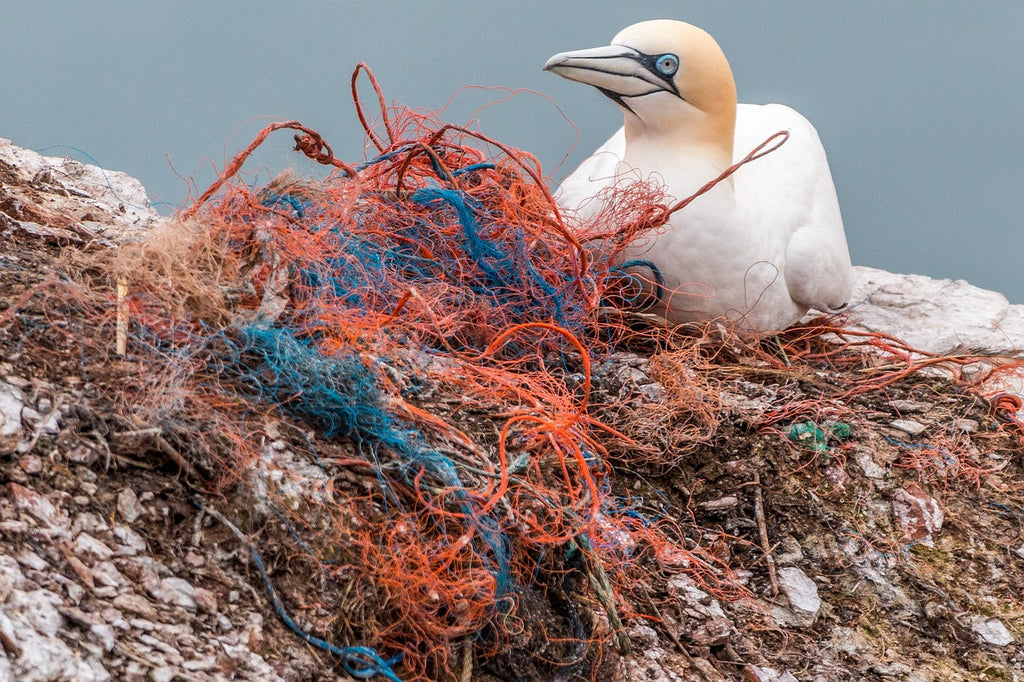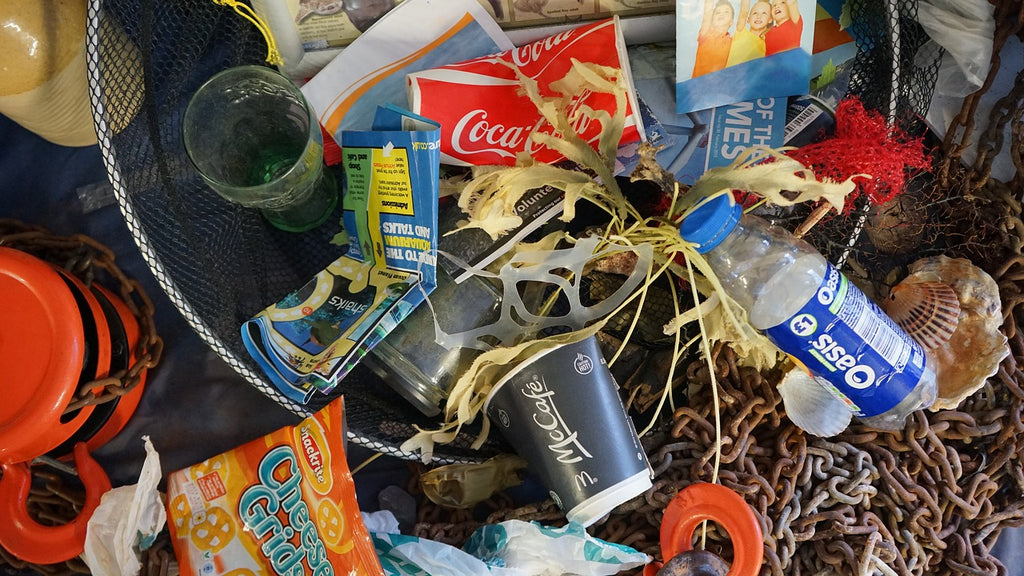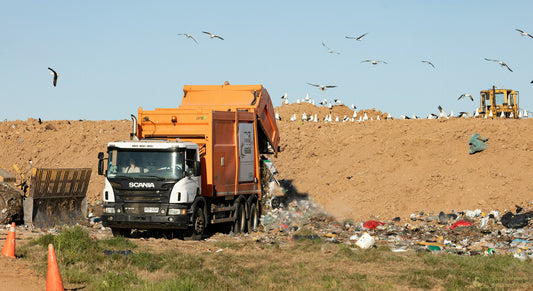Plastic waste is suffocating our planet, and behind this crisis are the hidden giants – the companies that contribute most to plastic pollution.
Plastic pollution, a menace fast-growing day by day, suffocates our oceans, hurts marine life, animals, and fish, and infiltrates our food cycle.
Which influential corporate giants are the critical actors in this environmental dilemma?
Let's dive into the top 5 companies that contribute tremendously to plastic pollution and discuss the effects of these entities, while highlighting the imperative nature of change.
Understanding Plastic Pollution

Plastic pollution has become a global issue, especially in seas and waterways. Non-biodegradable plastic waste can remain in the environment for decades or centuries. Microplastic particles smaller than 5mm are formed through abrasion and pollute water, soil, and air due to their widespread distribution.
Marine life sometimes mistakes them as food, which can cause internal injuries or starvation and lead to a torterous death. Plastics also emit hazardous chemicals into the environment, endangering wildlife and humans further.
Economic damage from piles of trash is another big issue. Beaches and seashores filled with litter, cost billions to clean up every year, which is paid for by taxes or privately funded NGOs.
While plastic recycling has been one of the key measures promoted by many, it can only be effective by lowering plastic production and use. Only if we encourage ecologically sustainable plastic replacements , increasing waste management and recycling infrastructure can yield the necessary results.
We need to create public awareness and hold big companies accountable, as their packaging and production are significant contributors to widespread plastic pollution.
The Top Contributors

The top 5 consumer companies contributing to plastic pollution are:
1. Coca-Cola:
It is well-known that Coca-Cola Company is one of the leading contributors to the world's plastic packaging, producing 3 million tons of plastic every year. Coca Cola is also known for regularly being in the limelight of greenwashing alligations. Just recently, the company was criticized for sponsoring one of the COP events.
Unfortunately, the forecast of recycling activities and the use of recycled material has been short of the original targets, and the plastic footprint remains massive.
2. Nestlé:
Nestlè is one of the biggest food companies in the world, which gives it a high degree of plastic pollution. Starting from water containers to the packaging for a variety of products, Nestlé's plastic waste is a far back problem.
One of the most treacherous examples for corporate plastic pollution is the use of plastic sachets in poor countries from consumer giants like Nestlè.
3. PepsiCo:
Like Coca-Cola, PepsiCo uses plastic packaging, which is predominantly used for its beverages and snacks manufacturing. The company says it is planning to use recycled plastics but faces the same criticism that it is not doing enough to fix the problem.
4. Unilever:
Unilever has had some success in sustainability and has committed to a goal of 70% recyclable, compostable, or reusable packaging by 2020. Nonetheless, its continued use of plastics in packaging is still a concern. As a major producer of personal care and home care products, Unilever produces more plastic than it recycles. Hence, the waste has become a fundamental problem in the eyes of sustainability.
Like Nestlè, Unilever is being criticized for selling plastic sachets in developing countries.
5. Procter & Gamble:
Consumer goods giant Proctor & Gamble produces a wide range of products that are packaged in plastic. Major product lines from the company are packaged in plastic containers, plastic-lined boxes or other plastic-based packaging.
Despite efforts to develop high recycling rates and minimize the dumping of waste into the environment, plastic remains a significant component of every waste stream.
The Impact of Plastic Pollution

As we already introduced above, discarded plastics endanger marine species, even to the point of killing millions of them annually. For instance, plastic garbage is mistaken as food and eaten, or animals get entangled and trapped in plastic waste.
Plastic trash is a cause of internal injuries, digestive blockages, and agonizing death in many marine animals as it mixes up with food. Researchers note that 8 million metric tons of plastic leak into oceans yearly, equivalent to a garbage truck of plastics entering the ocean every minute.
Microplastics, which are tiny plastic particles less than 5mm in diameter, have an extent of intrusion to the path of the marine environment, ranging from surface waters to the bottom of deep oceans. These small particles can absorb various chemicals in the surroundings, which they then leak into the body if consumed. Persistent organic pollutants (POPs) and heavy metals are only two examples.
Plastic pollution affects terrestrial ecosystems and human health. Individuals may be swallowing 39,000 to 52,000 microplastic particles every year through food, water, and air. Ingesting microplastics may induce inflammation, oxidative stress, and a lot more.
In addition to harming marine life and humans, plastic waste causes climate change. Plastic manufacture, transportation, and disposal emit greenhouse gases, contributing to climate change. Nature Climate Change research predict that plastic trash generation and incineration will contribute up to 56 gigatons of carbon dioxide equivalent emissions by 2050, significantly exacerbating climate change.
Call to Action
Simply put, governments, organizations, and individuals worldwide must work together to solve plastic pollution, this grave menace to the earth.
First, companies must develop biodegradable and reusable packaging to quickly replace non-biodegradable plastic items. This involves an end-to-end manufacturing revolution and unwavering determination in plastic waste reduction.
Since customer demand drives manufacturing changes, consumers need to be at the forefront of this transformation. Consumers need to demand less plastic-packaged items and hold companies accountable. Each purchase contributes to public efforts to reduce plastic pollution. If you're faced with a purchase decision, think twice and try to resist the convenience of buying plastic-packaged goods. Often there are better, cheaper, and more sustainable alternatives.
Additionally, authorities must show resolve by enforcing strict plastic production and pollution rules. This requires effective plastic alternatives and collecting systems that appropriately recycle and dispose of plastic trash. We can improve the future by working together. To save our planet, seas, and future health, we must act together.
We have no time to waste as we are already witnessing great disasters at the hands of pollution and significant marine loss due to excessive plastic in the ocean.
We hope you enjoyed this article. If you want to read more like this, make sure to check out our Blog and follow us on Instagram. If you are interested in truly sustainable products, check out our Shop.
What are your thoughts about the most polluting companies? Leave a comment below and engage in the discussion!







